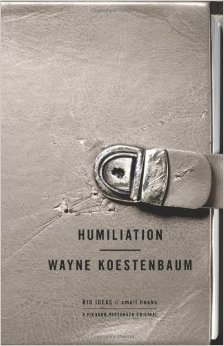As a child, I was ashamed of many things. I was ashamed of having my picture taken. However many times I practiced in front of a mirror, I couldn’t hold my gaze in front of a camera. Just before the camera snapped, I wilted. I didn’t like my smile; I didn’t like how the camera caught me looking tired or irritated; how my eyelids weighed down my face. I didn’t like my profile. My face wasn’t symmetrical, which the photograph was apt to expose. I was ashamed of my mouth: the way it shifted awkwardly to the right when I laughed. You’re always smirking, people would say. No, I replied defensively, it’s just crooked.
Humiliated, I made light of my misery.
I was ashamed of my intelligence. I couldn’t read very fast. I had very poor memory. I was ashamed of my height. My early school-yard crushes were all taller than me. I was humiliated by the idea that they found me undesirable. I was ashamed of my hair, which was thick and wavy and incapable of style. I wanted to look like George Harrison. But my hair wouldn’t acquiesce—the longer it grew, the more stubborn it became. A hair helmet, a totem of embarrassment.
Humiliated, I turned inward.
I wrote “as a child,” but this is, for me, inaccurate. Such feelings never disappear. I haven’t become more comfortable with shame; I’ve just learned to deal with it better. I hide my daily humiliations under a veil of contrivance like a dying father comforting his family. I’m still ashamed of many things: my incompetency at work, my fear of disappointing a superior or a friend, my relationship with my mother, my averted gaze while a homeless person boards the subway and asks for change.
Humiliated, my portrait betrays nothing, least of all my blindness.
I am writing these things with great embarrassment. I don’t want to reveal anything about myself. I want to enjoy the reviewer’s black mirror. But I couldn’t, with any sincerity, review this book without exposing something of myself.
Wayne Koestenbaum’s Humiliation is a collection of fugues. This is Koestenbaum’s word, not mine—there is Fugue #1: Strip Search, Fugue #2: The Jim Crow Gaze, Fugue #3: The Stink of the Liverwurst, and so forth—and it is aptly chosen. What is a fugue? The dictionary provides two definitions. The first relates to music: “a contrapuntal composition in which a short melody or phrase (the subject) is introduced by one part and successively taken up by others and developed by interweaving the parts.” The second to psychiatry: “a state or period of loss of awareness of one’s identity, often coupled with flight from one’s usual environment, associated with certain forms of hysteria and epilepsy.”
There is no better way to set the stage. The first definition of fugue reflects the form in which the book is composed. The “short melodies or phrases” are the chapter titles, which are then explored in meandering stanzas, listed in numeric succession, that move from the personal to the voyeuristic to the critical, building slowly and gaining weight like a Philip Glass composition. The second definition of fugue is what unravels through the process of discovery. In his exploration of humiliation, Koestenbaum often turns the lens on himself, and along the way, he fumbles, becomes short of breath, turns red from embarrassment; has he, the accomplished intellectual, really lived a series of humiliations? Is his life just another chapter—one sentence, perhaps—in the grand book of shame?
Dwight Garner, writing for the New York Times, wrote of Humiliation: “Writing about disgrace and shame and humiliation can have a unique power . . . Mr. Koestenbaum’s prose rarely achieves this sort of exaltation. He is mostly merely exhibitionist.” To be fair to Mr. Garner, his review of the book was largely positive. However, on this point, I disagree.
Can we write about humiliation, about shame, without rotating the mirror—are our words truthful, authentic, if we use the academic’s detachment? Certainly Humiliation is an uncomfortable book. It is a disquisition on the consequences—psychological, cultural, personal—of being humiliated. But who can escape its power? When Bill Clinton stood before the podium and declared that he did not have sexual relations with “that woman,” his shame was a public spectacle. And what of Hillary, Monica? When a victim of sexual violence is repeatedly asked to recount details to strangers, be they the police or a jury, is this process cathartic or traumatizing? When Alan Turing was forced to view his homosexuality as an aberration, a sickness, who came to his aid? Who protected his latent shame by vilifying the very government that benefited greatly from his genius?
Humiliated, I become one body, one heart, which no thought can absolve from pain.
That is what makes Humiliation so important. Koestenbaum is uninterested in such rhetorical window dressing. He recognizes, as a writer, as a conduit between witness and victim, that the very act of discussing humiliation is humiliating. That he has been humiliated, that no one can escape its claws. It follows us like a parasite. Koestenbaum could have exposed the concept of humiliation as a cultural critic, detached from the debasement, unwilling to expose something of himself, but he refused.
What Garner claims is “merely exhibitionist” in the book is where I believe the book best succeeds. Because if there is any solidarity in the stories we hear, it is in recognizing that we ourselves are in the same pot, susceptible to the same consequences. That we survive, that we continue to thrive in our respective lives, is our good fortune and also our burden. The king who sits atop his throne miles from the lands and people he oversees is the most ignorant of himself. He fails to see that when exposed to oxygen, his blood turns red just like everyone else’s.





